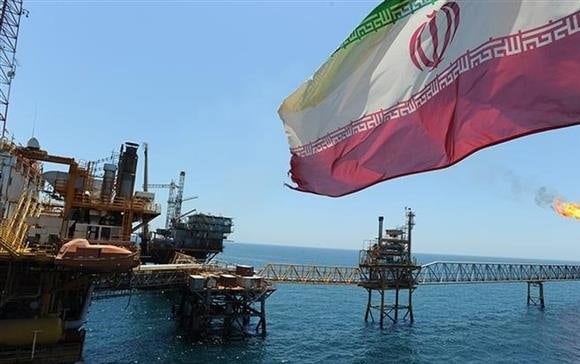As Iran faces economic crisis and a drop in oil exports of up to 95%, another senior official has issued an “all is well” statement.
Amir Hossein Zamaninia, the acting Iran Governor for the oil cartel OPEC, says the Islamic Republic will not need any oil income in 5 to 10 years.
Zamaninia told the energy website Platts, “At the end of the day, it seems that in 5-10 years, Iran will find itself in a state where it will not much need its oil income.”
He admitted that the sanctions, imposed after the Trump Administration withdrew in May 2018 from the 2015 nuclear agreement, had made it difficult to sell oil. Asked by Platts, Is it correct that Iran has only two or three oil customers now?”, the governor said no but continued, “I don’t want to talk about this. No figures. I want to keep it ambiguous for you and those who read your report.”
Zamaninia insisted that the situation was an opportunity for Tehran:
“[The sanctions] have had a silver lining for the Iranian economy that is facing many challenges. It is gradually causing a structural adjustment to less lean on oil income.
In late April, 1st Vice President Es’haq Jahangiri insisted in a meeting with officials, “Crises and sanctions [by] the United States of America have enabled us to develop the necessary readiness to run the country’s affairs under the current circumstances.”
Jahangiri did not explain how sufficient non-oil revenues will be generated.
Iran Daily, April 22: Vice President — We Can Run Country With No Oil Income
Iran exported about 2.5 million barrels per day in April 2018, sales have plummeted to as low as 200,000 bpd, according to energy analysts. The International Monetary Fund, which projects an 11% contraction in Iranian GDP this year, says the country faces an $18 billion trade deficit.
Amid long-term internal problems and the US sanctions, Iran faces difficulties with production, trade, investment, and employment. The Iranian rial is near its all-time low of 180,000:1 vs. the US dollar.
Exports to China, Iran’s top customer, are down 53%, and trade with Turkey has fallen by 70%. The overall sale of petrochemicals, a key part of a non-oil trade strategy, has declined by 30%.


“We Won’t Need Oil Income in 5 to 10 Years”
You won’t be around in 5 years time. Nothing left to steal.